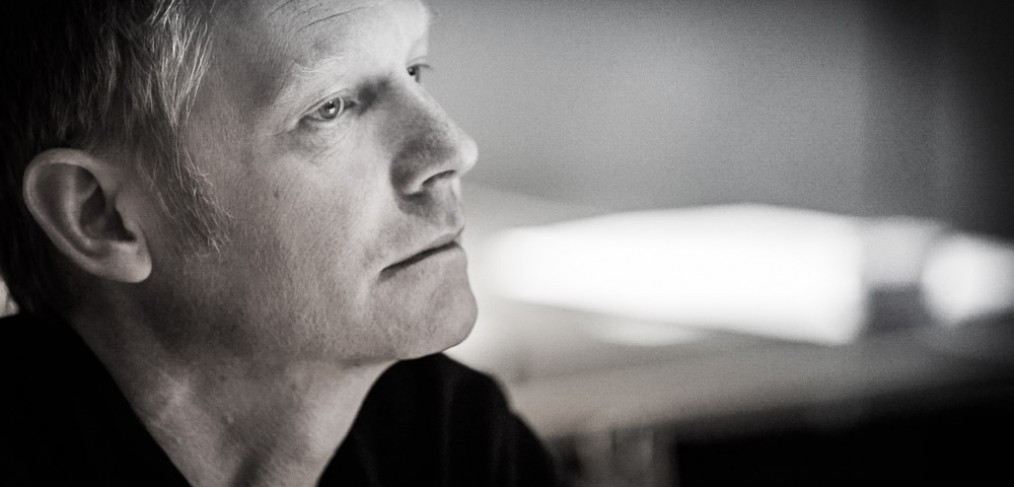
MELODY IS SIMPLICITY
In a high-tech-world, Jakob Vinje also knows the value of low-tech. A three-dollar pencil and a ninety-nine cent eraser are still enough for a good composer. Oh, and a grand piano doesn’t hurt.
Although Jakob has all the tech equipment you need these days to input and record music, he still relies on the trusty pencil-and-eraser combo. And he is quite willing to admit something that all creative people know, but some are reluctant to say.
“I use the eraser a lot,” Jakob said, explaining his working method. “Much more than the pencil.” It’s the constant paring back, he says, that makes the music. In saying this, Jakob is very much in step with one of the greatest composers of melodies of all time: Frederic Chopin. Chopin once said that: “Simplicity is the highest goal, achievable when you have overcome all difficulties. After one has played a vast quantity of notes and more notes, it is simplicity that emerges as the crowning reward of art.”
In other words, the eraser triumphs over the pencil.
LEAVING SPACE FOR THE MUSIC
The creative act is a constant effort in reduction. It is also a brave act, to produce and then discard. It takes a keen sense of knowing when to carry on, and when to stop.
For the listener, the result seems effortless. The music that Jakob has written for TEST is a like a listener’s guide to effortlessness. The melodies, the rhythm changes, the small touches and flourishes to the music that have come from Jakob’s fine hand will give you a deep appreciation for the art of simplicity as its finest.
Music has to be this way. After all, Chopin also said that you cannot gloss over any troubles or deficiencies. If you do, you won’t be able to sleep at night, Chopin said. And last time I checked with Jakob, he’s sleeping just fine.
A FUNERAL AND A PIANO
Now about that grand piano. Over the past year the creative team also spent many hours getting to know each other, talking about their personal lives, even sharing a darker secret or two.
One of the best stories to emerge from the late-night sessions was how Jakob, when he was sixteen years old, cornered the market on playing background music and religious hymns at funerals. Not only is Jakob an excellent pianist, he is obviously a good businessman. He knew that the death and funeral market was not going to disappear. It was a lucrative job that served a dual purpose: earning money and a lot of playing time in public. With the money he earned he bought a beautiful grand piano. Not the one he’s using today, of course. But when you listen to the deft hand and light touch that Jakob has on the piano, you can sense that he started his ten thousand hours of practice on the piano at a young age, hustling the funeral parlors of his home town.
FULL VOCAL RANGE
At the various TEST workshops and rehearsals, actors have commented that Jakob’s compositions are not easy to sing. And they mean that in a good way. The harmonies are rich and intricate. And when it comes to melodies, Jakob doesn’t simply let the singers sit in their comfort zone.
Jakob is not shy about using the full vocal range of the singer. The melodies that he writes are never static, and always memorable. It is demanding for the singer. For the listener, it is simply beautiful.
“This vocal range is what gives Jakob’s melodies such life,” said Daniel Raaflaub, who plays Tony in TEST.
FULL EMOTIONAL RANGE
Sometimes, Jakob has admitted, he doesn’t need the eraser. For the song in TEST called “Love Her (Nevertheless)” Jakob sat at the piano and wrote fast. Like in fifteen minutes.
“As soon as I got the lyrics for this song I knew what I was going to do,” Jakob said. “I was able to tap into the essential mood of the song.”
The emotion of “Love Her (Nevertheless)”, which is sung by Daniel Raaflaub, is Tony’s questioning of himself about his inability to love Sophie because he feels she is so different than he is. Tony was designed to be perfect. Sophie wasn’t. But can he love her anyway? Tony wonders.
Jakob captures the mood of the song by giving it a rich yet melancholic sound. As Jakob said at one of the meetings of the creative team: “I see my job as giving color to emotions of TEST.”
It takes a lot of deep-reaching effort and fearlessness to capture these emotional moments. In his compositions, Jakob has explored the full range of emotional color for TEST.
We the audience don’t get to see the eraser and the effort that Jakob has expended. But we get to savor every rich musical moment that Jakob and his pencil have produced
